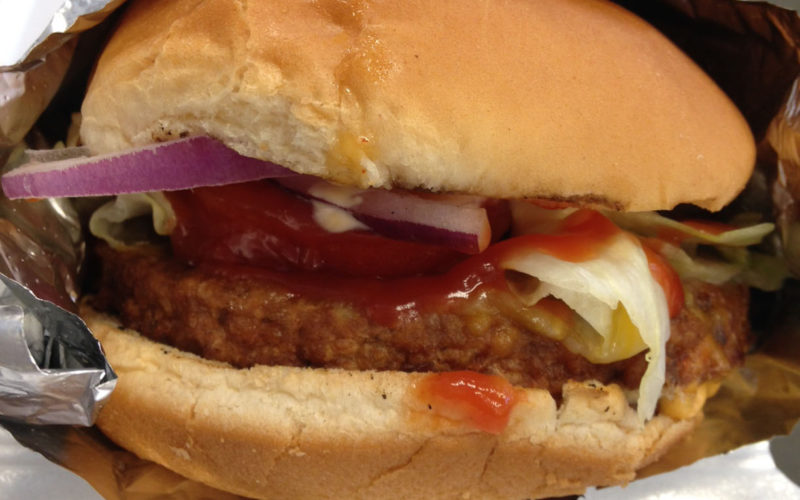New burger targets those who love them
AMANDA BANCROFT
Making Ripples
Meatless meat, dairy-free dairy, eggless egg substitute — what is this world coming to? Hopefully, a better place. Reducing our consumption of animal products helps fight climate change and improve animal welfare as well as our health, in some cases. People already avoid red meat for a variety of reasons, such as if they’ve had a heart attack, gotten Alpha-gal Syndrome from a Lone Star tick bite, or if they’re vegetarian or vegan.
So it’s not surprising that Burger King’s new meatless wonder, the Impossible Burger, has been well-received in St. Louis, where it was released to test the market. In a recent statement, Burger King said the new Whopper-like burger had performed so well that sales were comparable to regular Whoppers. The company plans to test additional markets with the goal of distributing the Impossible Burger nationwide by the end of 2019.
Articles on the announcement tend to think of this as a revolution for Burger King, and some consider it the biggest distribution of meatless meat at a fast-food chain ever in history. But Burger King has already offered a veggie burger for years. According to the company’s website, “Not just for vegetarians, our great tasting Veggie Burger is made with real vegetables and wholesome grains, beginning with a MorningStar Farms Garden Veggie Patty and topped with fresh-cut lettuce, juicy tomatoes, white onions, crunchy pickles, ketchup and mayo all served on a toasted sesame seed bun.” The Impossible Burger offers the same accompaniment to the new patty produced by Impossible Foods. It’s made from plant ingredients, including soy, potato, sunflower and coconut oils, and heme, an essential molecule made from yeast fermentation. Impossible Foods explains that heme is “what makes meat taste like meat” and contains iron.
There are a lot of alternatives to all kinds of animal products out there, and plenty of criticism from vegans and other groups who argue (rightfully) that it’s still unhealthy fast food, it’s genetically modified, and so on. But the Impossible Burger is not trying to be a healthy alternative meat option for vegans at all.
In an interview on “The Ezra Klein Show” with Impossible Foods founder and CEO Patrick Brown, he explains that vegans are not the target here. “The only customer that we care about — given our mission — is someone who loves meat, is not looking for an alternative, and is not going to compromise on the pleasure of eating meat for some principle or because they’re concerned about the climate impact or something like that. That’s our target customer… We had to make something that a meat lover will prefer to what they’re getting today from an animal.”
Sounds like an impossible goal. Yet, Impossible Foods may have already achieved this, at least in trials. “We have a lot of data from a large kind of consumer test that we did a few months ago, with 600 burger eaters in four cities around the country. We gave them our burger and asked, ‘If you could choose between this and the burger that you’ve been buying at the same price, which would you choose?’ and they choose ours by two to one. What it told us was that people who love meat love it because it’s delicious, affordable, nutritious, familiar and it’s got some kind of cultural resonance for them. The fact that it’s made from an animal has never been part of the value proposition.”
Is the Impossible Burger good for our health and the planet? Yes and no. But is it a surprisingly huge leap in the right direction to curb climate change, increase animal welfare, and reduce some instances of human diseases? Yes, absolutely.
Amanda Bancroft is a writer, artist, and naturalist living in an off-grid tiny house on Kessler Mountain. She and her husband Ryan blog about their adventures and offer tips to those wanting to make a difference at www.RipplesBlog.org.










